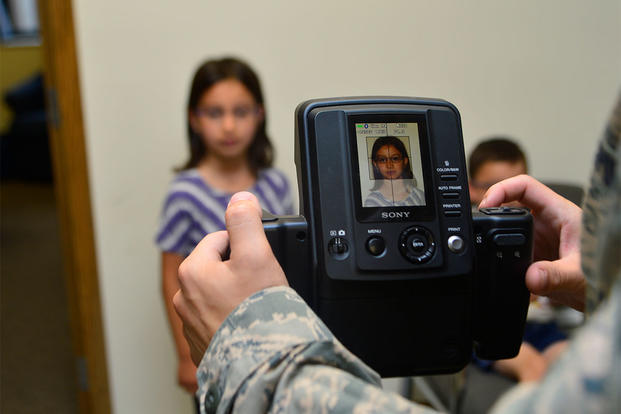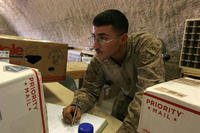Lawmakers are scheduled to consider new legislation this week to revise a current policy that makes it more difficult for some children of service members stationed overseas to obtain U.S. citizenship.
The House will take up H.R. 4803, the "Citizenship for Children of Military Members and Civil Servants Act," to update a 2004 rule that stipulates children not granted automatic citizenship need to physically establish residency in the U.S. in order to become a citizen. The bipartisan bill, introduced in October, would grant these children residency despite them living overseas with a U.S. service member or federal employee parent.
The bill is in response to a U.S. Citizenship and Immigration Services policy update published in August.
The policy announcement stated that, "Effective October 29, 2019, children residing abroad with their U.S. citizen parents who are U.S. government employees or members of the U.S. armed forces stationed abroad are not considered to be residing in the United States for acquisition of citizenship."
Related: Here's Who's Affected by New Citizenship Policy for Children of Troops Serving Overseas
At least one parent had to be a U.S. citizen, according to that policy.
"Similarly, leave taken in the United States while stationed abroad is not considered residing in the United States even if the person is staying in property he or she owns," it said.
Additionally, "U.S. citizen parents who are residing outside the United States with children who are not U.S. citizens should apply for U.S. citizenship on behalf of their children under [the policy], and must complete the process before the child's 18th birthday."
The announcement, which officials called a "residency reminder" at the time, caused immediate uproar because it was initially interpreted by some to mean that the U.S government would start revoking automatic birthright citizenship for those born to U.S. government employee or troops serving abroad.
The new policy "[does] not affect anyone who is born a U.S. citizen, period," USCIS Acting Director Ken Cuccinelli said in a statement to Military.com at the time.
However, there were some new obstacles created by the update.
According to the policy, children who did not acquire citizenship at birth are not considered to be residing in the U.S. just because their parents are citizens. These parents would then have to apply for U.S. citizenship for their child, which could make adoptions more complicated for some families.
As a result, Reps. Jerrold Nadler, D-New York, and Doug Collins, R-Georgia, both members of the House Committee on the Judiciary, introduced H.R. 4803 to create greater flexibility for these families.
Under the bill, the policy's final requirement -- to reside in the U.S. in the citizen parent's legal and physical custody -- is "fulfilled if a foreign-born child is (1) living in the legal and physical custody of the citizen Armed Services member or government employee who has been stationed abroad (or the accompanying spouse of such a citizen), and (2) lawfully admitted for permanent residence in the United States," it states.
"American citizens who are deployed members of our military or government officials working abroad should have confidence their children will receive U.S. citizenship," Collins said in a release following the bill's introduction. "The Citizenship for Children of Military Members and Civil Servants Act would ensure children born abroad who do not currently satisfy the residency requirements for acquiring automatic citizenship because their parents are deployed will now satisfy those requirements."
"Families making tremendous sacrifices to serve our country shouldn't have to jump through additional hoops for their children to become American citizens," he added.
-- Patricia Kime contributed to this report.
-- Oriana Pawlyk can be reached at oriana.pawlyk@military.com. Follow her on Twitter at @oriana0214.
Read More: US Military Makes Bold Statement in First-of-its-Kind Exercise with India














